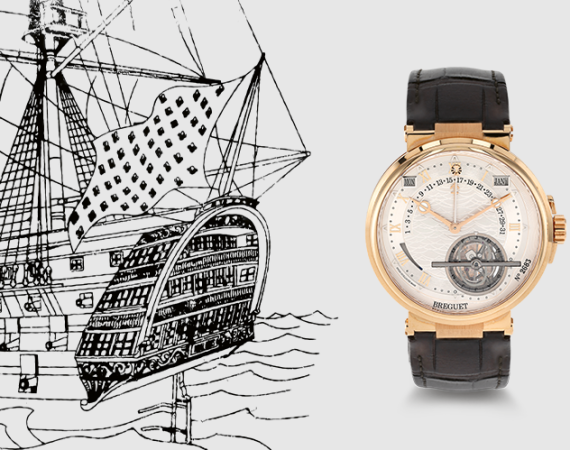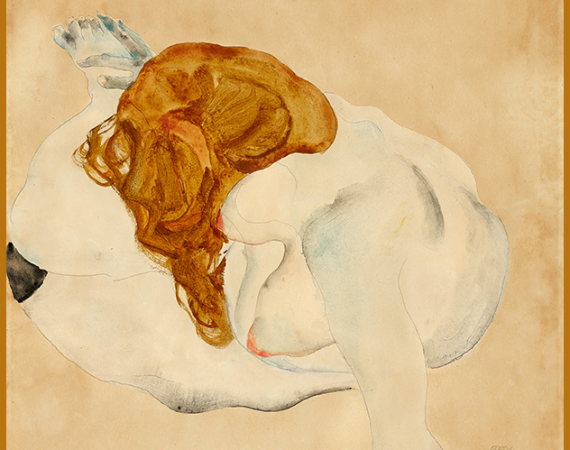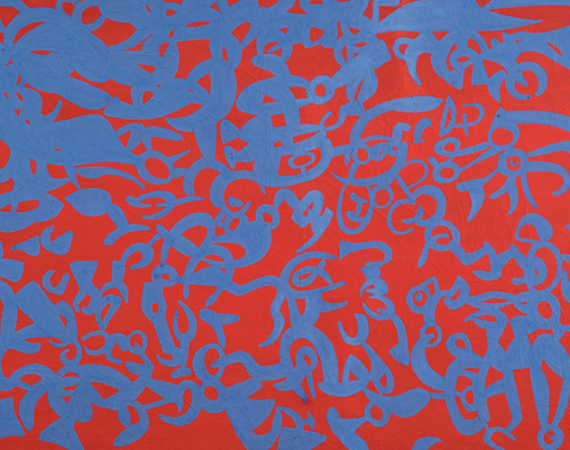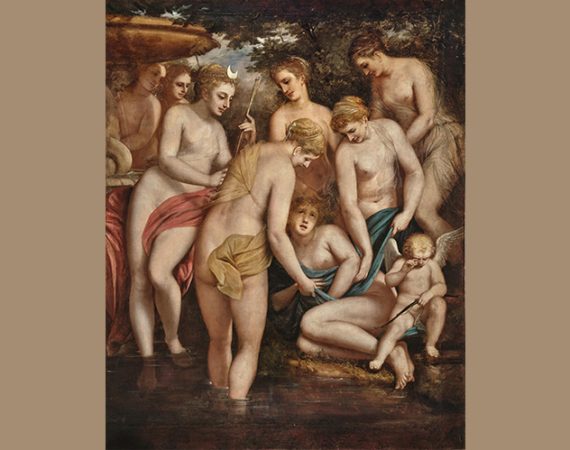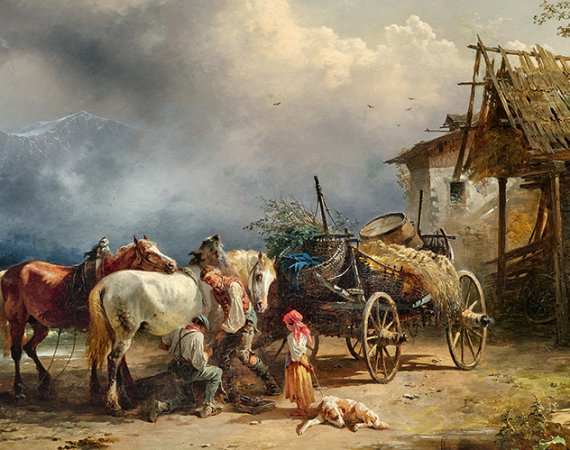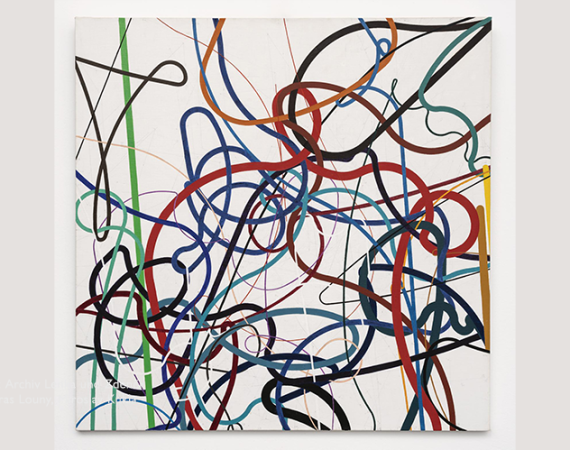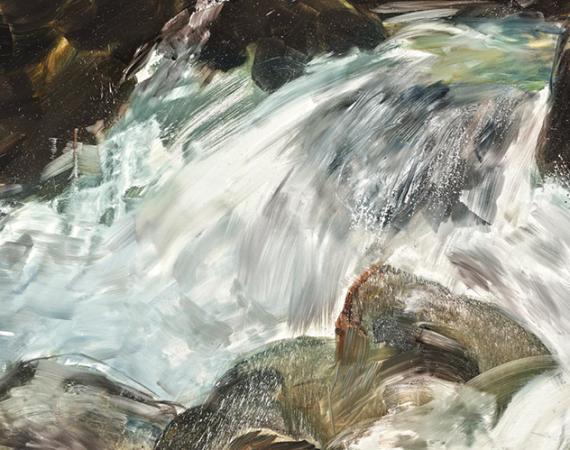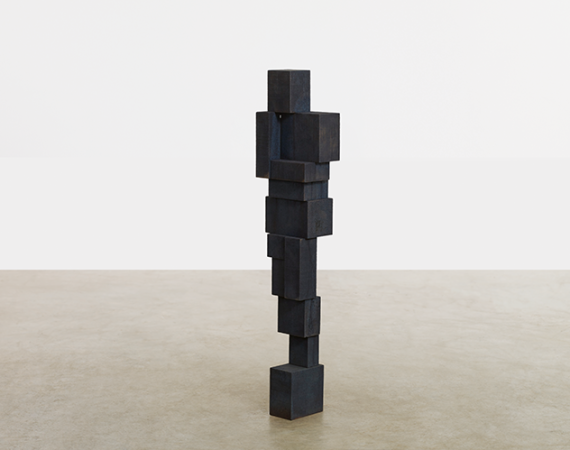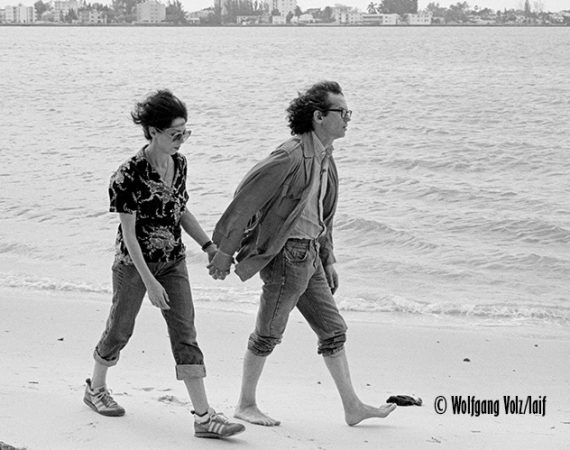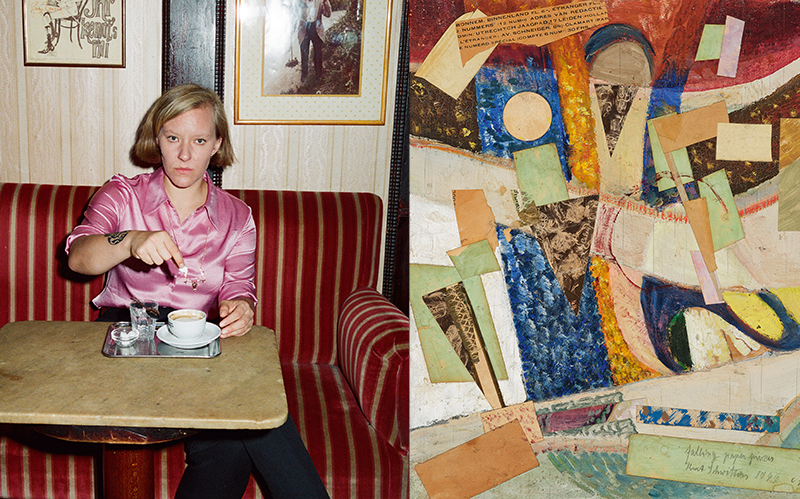
“Feminine bitch-slap, Odin’s cellular respiration, THANK YOU!” In the latest instalment of our literary series, Austrian author Raphaela Edelbauer draws inspiration from a collage by the German-language artist and actionist Kurt Schwitters, mastermind behind the Dadaist sound poem Ursonate. A trip with Edelbauer to Vienna’s Zentralfriedhof, the main cemetery.
The day was a stormy day. Frau Engineer Rosemary Fisole had to deliver a eulogy for her best friend, Frau Henrietta Maria Geigensait (God bless her soul), who had sadly passed into the arms of the lord on the Monday previous. 15 relatives on her mother’s side and 15 on her father’s side had gathered into a marble rhombus at the Vienna central cemetery. Since Frau Rosemary knew how to behave on such occasions, she shook all 30 hands of those in attendance according to their genealogical degree. She powdered her nose, for the clock hand was approaching the twelfth hour and such a eulogy could not be received with an unpowdered nose. Frau Engineer Rosemary Fisole was a cultivated woman. As Mr. Andre Rieu and the Johann-Strauss Orchestra’s rendition of Ave Maria started playing through the speakers, she made sure to sit herself behind the close relatives, but in front of Ms. Gaigensait’s work colleagues; such was her de facto right as a good friend. But then, to her horror, she discovered one of Geigensait’s cousins, sitting to her left: Cousins of the first degree before good friends, she thought and, with a fierce whisper, ordered the Geigensait to sit in front of her. Now everything was as it should be. Frau Engineer Fisole was a cultivated woman and sat through (with the appropriate facial expression) Handel’s Hallelujah; then through the speech of the deacon (who had been bought with the coffin); a song by Geigensait’s favourite singer, Wolfgang Ambros; a tear-drenched speech by her daughter; then, yet another song by Geigensait’s favourite singer, Wolfgang Ambros, before, finally, it was her turn.
With great composure, Frau Fisole took her cue cards, which had been arranged meticulously with her own colour-coded system, and approached the podium with a gait appropriate for the occasion.
“Dearest Weeping-willows, beloved Effervescences, sepulturing Animalia, who are all in the memory of our Mother, Aunt, Friend, Daughter…ex-wife, Niece, Cousin…”, she began, counting with her eyes to make sure she hadn’t left any of the Geigensait relatives out, “…Sister-in-Law, Acquaintance, Colleague, Second-Cousin…Granddaughter, Second-cousin-once-removed, Mother-in-Law, Girlfriend–”
The Engineer nearly had a heart-attack when the doors suddenly swung open and a group of mourners took their seats. The storm raged outside. It was a stormy day. But such an interruption would never throw a Fisole off course. She simply extemporised for the newcomers: “…Erstwhile Fiancée, Great-grandniece, Old Auntie, Sister, Great-Daughter-in-Law, Sister-in-Law…” It struck the Engineer like lightening when the doors opened for a second time and ten more stragglers piled in. But she was a cultivated woman and she was not going to forget a single one of them:
“…Character-Witness, Great-Great-Great-Great-Great-Great Granddaughter of some Homo Habilis, Complete Stranger, Cat-Lady, That Woman Over There On The U-Bahn, Spouse, Client Of A Tax Consultant, Friendly Face In The Billa On The Wien-zeile…” – she caught her breath – “gathered here today.” A weight lifted from Engineer Fisole’s shoulders now that she had well and truly accounted for everyone present. She was in the middle of clearing her throat in order to proceed with the eulogy proper, when a young man in the back row shot up from his seat. Engineer Rosemary instantly recognised her faux-pas: she had forgotten Geigensait’s granddaughter’s stepbrother, who was already storming out of the hall at about 4 horsepower, flinging open the doors and letting in a tremendous windy vortex. It only took a brief instant for an ambitious gust of wind to carry away the cue cards from the arms of the truly cultivated Engineer Rosemary Fisole. So much for her thematic and colour-coded system, which now lay scattered across the stage, left and right, all out of sequence. Now’s the time to keep your cool, Engineer Fisole said to herself and decided to stall for time with the most general introduction possible until she could come up with a solution.
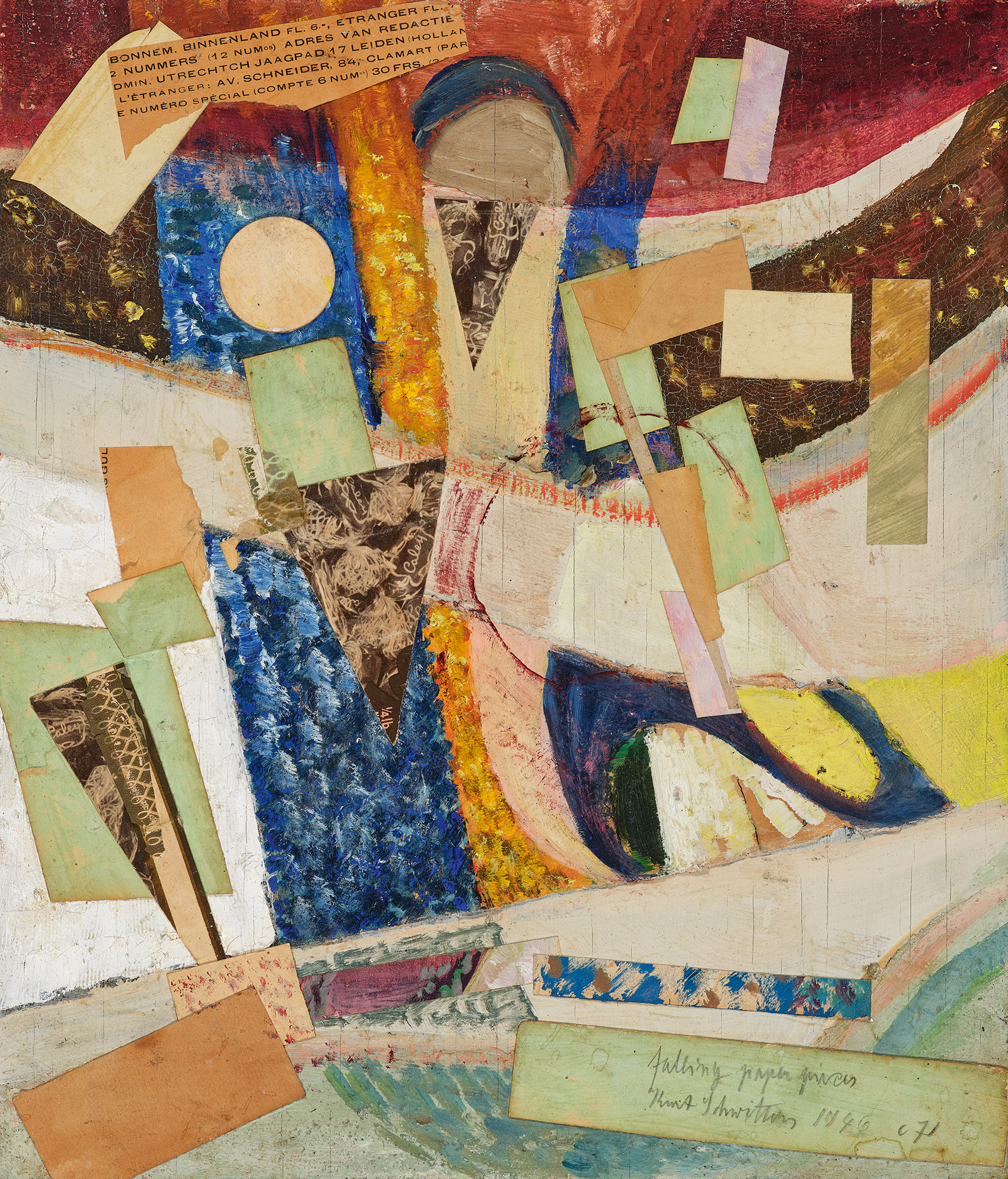
“According to ancient Finnish mythology, yeast comes to life at night and grows legs, and this yeast, which can attain speeds of up to 20kmph, hurls itself into the flour as fast as it can. The dough which results from this mystical process is known as, Kolmivaihekilowattituntimittari, and is placed on the eyelids of curious people who have sore eyes from too much staring.” But Engineer Fisole could tell immediately from the faces of the mourners that she had failed to make any friends with this little performance. Another strategy was called for. But she still needed her cue cards, which were all jumbled up and scattered across the floor. Such a hurdle, however, would not phase a Fisole! On the floor, there were three cards to her left and three to her right – and since the probability of each card being the first was one sixth, Frau Engineer Fisole decided to distribute the risks. She would read the first sentence from one card and then run to the next – it would be foolproof.
“She never let her illness show. And her Bowling brothers and sisters at KC Rodham saw her as a fun-loving colleague. She was five and I was six. That’s when she had her first son, Hermann Geigensait. For every problem you had a solution to hand. I would like to tell you a very short story.”
Meanwhile, a certain doubt was emerging within the audience as to whether this was the most appropriate speech for honouring and sanctifying the memory of their beloved Frau Henrietta Maria Geigensait (God bless her soul). Frau Fisole took note of this. Regrettably, it occurred to her that she had failed to calculate the risks extensively enough, and that it would be far safer to read just one word from a card at a time before skipping to the next. She sprinted back and forth like she was in a military drill: “Grandchildren, sad memories, thankfully had Bible. Human years travel world chicken-coops further. Thornton Wilder, laughed Psalm 23.”
By this point, loud coughing, spluttering and throat-clearing could be heard from among the 20 paternal and 20 maternal relatives. But as far as Frau Fisole was concerned, she had yet to fulfil her duty as a friend. With this unwavering sense of duty, it seemed to the Frau Engineer that the only problem was that her eyes (which had long since lost their glasses) no longer knew how to keep up with the words at such a pace: “Nanga Parbat saucy Minx in our Leberkäse, Chalk rocks disgraceful ransom,” she screamed as if it were a matter of life or death, “Feminine bitch-slap, Odin’s cellular respiration, THANK YOU!” She had found the perfect solution after all, Frau Fisole thought with relief as she stepped down from the podium and, because she had sprinted back and forth so much by the end, accelerating into a climax, all 40 relatives found themselves startled into rapturous applause. The cue cards remained scattered across the floor, while beautifully dressed pallbearers entered the hall to collect the mortal remains of Frau Geigensait (God bless her soul).
About the author

Raphaela Edelbauer is among the most prominent voices in contemporary German-language literature. Born in Vienna in 1990, she pursued studies in language arts at the University of Applied Arts. Her debut publication, Entdecker, earned her the prestigious Rauris Literature Prize in 2018, an accolade recognizing outstanding German- language prose debuts. Numerous distinctions followed, including the Audience Award of the 2018 Ingeborg Bachmann Prize, the Theodor Körner Prize in 2019, and the 2021 Austrian Book Prize for her novel DAVE. Edelbauer’s latest novel, Die Inkommensurablen (The Incommensurables) is set during the First World War and has been nominated for the 2023 German Book Prize.
AUCTION
Modern Art, 28 November 2023, 6 pm
Palais Dorotheum, Dorotheergasse 17, 1010 Wien
20c.paintings@dorotheum.at
Tel. +43-1-515 60-358, 386

